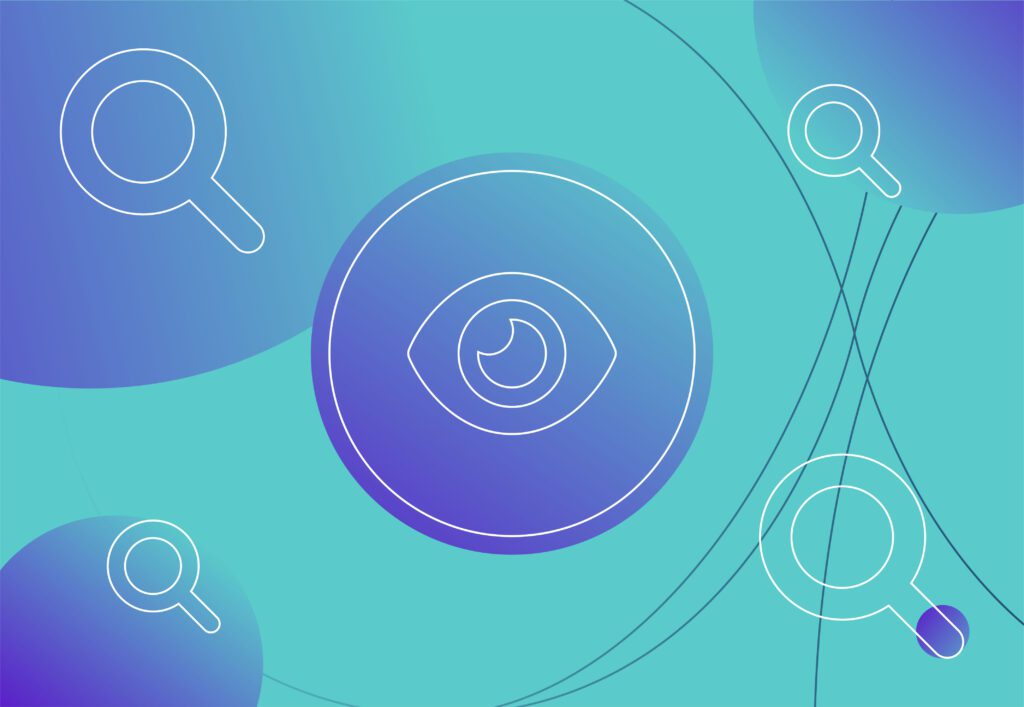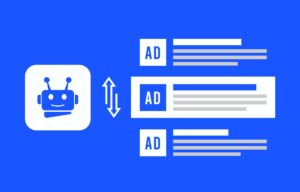
Using AI to drive PPC automation

It seems you can’t move for chatter about AI these days. But as the times change, so does marketing – with pay-per-click becoming one of the main conduits, for AI whether that’s through auto-bidding-strategies or even ad copy idea generation.
Using this technology gives options on the ways PPC-ers manage their time and energy, with those repetitive and tedious tasks allocated to intelligent computers instead of humans.
In this blog, our in-house experts talk about some of the key ways AI can help you drive your PPC campaigns – specifically looking through the lens of ‘automation’. From where to apply it to careful considerations, we’ve got you covered.
So, let’s get into it.
Using AI in PPC: the basics

Of course, automation takes some elbow-grease to get it up and running. If you had all the time in the world (which, for agencies, would be a fine thing) – you might be able to manually program and customise your own PPC-tuned AI through code.
In terms of practical applications, the closest thing we have available would be using Automated Rules to replicate how a human might optimise an account. Which, depending on the human and their existing understanding of PPC, might not be well.
However, machine learning is another application that we can use.
Armed with a more statistical approach, which works especially well with Google Ads, it can help you accurately predict which ads are most likely to get clicks and conversions.
What are some issues?
As with all elements of digital marketing – if it’s handled badly, it ends badly. In the wrong hands, AI can prove disastrous for PPC campaign management, so make sure you’re quality-checking your automations throughout.
For instance, an automated search query generated by AI might choose new keywords without understanding – or even looking – at how applicable they are. In other words, AI is more prone to ‘silly’ errors that humans are less likely to make.
For example, if you’re utilising Google’s Flexible Bid Strategies to achieve a sizeable return on advertising spend (ROAS) for a Google Ad campaign – you might not be collecting enough of the ‘right data’. AKA, the stuff that’s harvested at the right time, in the right place. As a result, you might find that keywords are bid down to lower pages – but the change won’t be flagged up in time so you can catch the misstep before your conversion levels drop.
In a sense, it’s not enough to just set an automation and walk-away. We need to keep an eye on it.
How can we use AI well in a campaign?
To ensure nothing goes wrong while your eyes aren’t on the prize, tools like Google’s Anomaly Detector – which flags up changes from expected performance on an hourly basis – are your new best friends.
You could also automate a number of individual management tasks without connecting them, giving you 24 hours of hands-free control that can pause keywords whose Quality Scores drop below expectations set by yourself..
To make the most of your PPC automation, using AI to manage a range of interlinked tasks and components – such as bids and budgets that can work together – might be a smart idea. For example, if bids are raised, then AI can spot and reallocate budget to the best-performing campaigns before human intervention.
Of course, these tactics all need an element of human eye-balling.
Although, you can build a campaign that has established goals and clearly defined keywords, budgets, ads, bids and targeting options solely all managed by machine – full automation is a little ways off.

It’s something Senior PPC Account Manager Kris Boorman has thought about for years.
“Back in 2018 I attended a Google “Expert Academy Day” that educated PPCers on using automated bidding, and at the time we all had the same thought – “my career is over”, says Kris.
“In truth, AI has simply changed what a PPCer can do day-to-day. Instead of spending our time manually bidding up and down, with automated bidding on our side, we can now think more about the audience we’re targeting, their purchase journeys, landing pages, product attributes, and how competitors approach these.
“There’s no doubt that automation can analyse and make decisions moment-to-moment in a way us mere mortals can’t – but on the flipside, we can understand how to optimise for “the human factor” and let “the machine” handle the PPC auctions.
“Google is already making strides in bringing more AI-driven features to the Ads platform and I’ve got no reason to doubt they will stop.
“As ever, it’s on us PPCers to determine when to, and when not to rely on Automation.”
As with all new technology, digital marketers need to be vigilant about how we use AI to drive PPC automation. If it’s not done properly, it can not only damage our own campaigns but also the way we develop systems as an industry on the whole.
TLDR
- AI is now being used to automate some PPC marketing tasks.
- This frees up human marketers to focus on strategy.
- Machine learning helps predict successful PPC ads, with new AI-driven features being added to Google Ads Platforms and AI generative Performance Max.
- But AI automation can have downsides – like choosing irrelevant keywords.
- In all, AI is a powerful tool for PPC but needs human oversight.
In all, vigilance is key
Narrowly beaten by SEO, PPC is one of the digital channels that has no choice but to develop quickly – and widely.
As such, automated PPC will become more prevalent, but will still require that ‘human’ insight to monitor automation. Why? Because no matter who did it, sent it or planned it, if a PPC campaign doesn’t convert – then it’s useless to both man and machine.
Like what you read? Why not get in touch for a personalised PPC audit from our team of experts.
